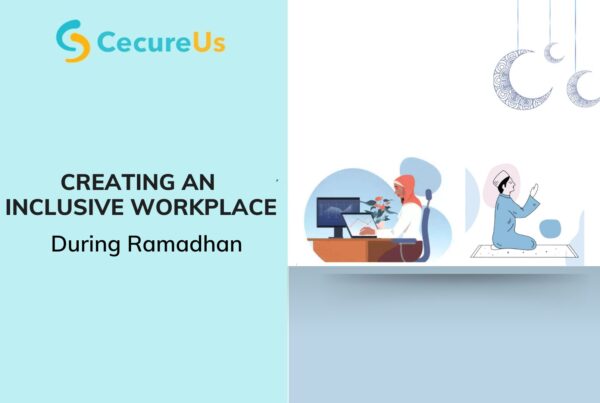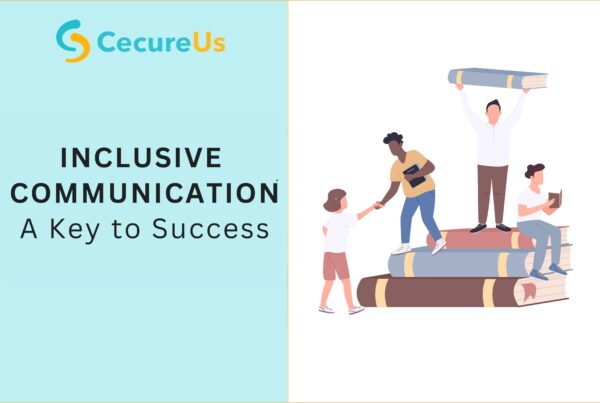Society is progressing towards inclusive diversity in several aspects. But we need to understand that a family forms the foundation of a good society. Being inclusive as a community lies in building an inclusive family that treats men and women to be equal, values the opinions of both genders, and gives women of the family the freedom to voice their opinions and follow their dreams. Our society, although enriched in diversity, lacks inclusiveness as a whole.
We were attending the last few days of our two-year full-time PGDBA program in a reputed Institution in Chennai. My classmate Melina (name changed) was a student with the highest Cumulative Grade Point Average (CGPA) of 8.3. She was awarded the best student with a gold medal on our Graduation Day. I was an average student in college and got selected through a Campus interview to work in a recruitment consultancy, while Melina and the others were recruited by MNCs with fat pay packages. Years passed, and I specialized as a PoSH consultant with an organization. It was our alumni day, and I met my classmate Sangeetha. While talking to her, I was shocked and surprised to hear that Melina quit her job after her wedding, has two kids, and lives with her husband in the USA. I could not understand what happened to the ‘gold medallist’ Melina, whom I once knew? All her efforts to excel in college were in vain?
How many Melinas’ have you met in your life? If we look into the crux of the issue as to why women leave the workforce altogether, it is easy to understand the root of the problem. Lack of inclusiveness in society as a whole. Lack of support for working women both in the family and from the organizations. Although there is preaching about how we can implement inclusive diversity in society, practice is rarely seen.

The Great Indian Kitchen is a movie that captures the intricate lives of Indian women in depth by depicting how Indian society fails to treat women as equals in the household and how it lacks inclusiveness in the family. I would be a fool to not understand what the film portrays. Here are a few hard-hitting points; if able to strike the right chords with the mass, it can bring out the much-needed Inclusive diversity in society.
- Women are pushed/do disproportionate unpaid work at home like cooking, cleaning, baby-sitting, etc. They are made to understand and believe that they must do so with a smile. The other family members do not even acknowledge the women who do such work, which otherwise will not be done by anyone else. Where is equality and inclusiveness in this?
- Wikipedia defines marriage as a culturally recognized union between people, called spouses. We should understand that it is a tradition that establishes rights and obligations between them, their children, and their in-laws. All other definitions on the internet speak about marriage as an institution that brings a man and a woman as partners; and reinstates that they have equal rights. Though the husband in this picture propagates this as an equality lesson in school, he seldom follows it at home. It is easy for people to talk about equal rights and how to be inclusive in married life, but to follow them in actuality is nothing short of a challenge. The woman does not have equal rights to express her preferences or feelings or feel inclusive in the family, and sex is not an exception.
- Although society, especially corporates, incorporate inclusive diversity by providing equal opportunities for women, career for women is not a priority, no matter how talented they are. Women are forced to understand that family is the first and foremost priority once married. In Indian society, if a girl has to work/study after marriage, the idea should be approved, and permission granted by the husband and his family. It is not her individual right to do so. This marks the failure of inclusiveness in any family that denies equal rights for women.
- Gen X women are silently abused in the domestic household by both men and women. As time progresses, these women get used to physical and verbal abuse. It is disheartening to see that they live a monotonous, unequal, regular life, not even able to understand that they are being abused. A woman venting out her emotions to her mother/sister/friend does not really help since the advice she gets back from society is to learn to adjust with her in-laws and their extended family. She is bound by the irrational customs of society to put up with it more if she is married to a prestigious family.
- Gen X women have been conditioned to do all the household chores. The women have been forced to understand that feeling disgusted/guilty doing them every day is unacceptable. The previous generation has passed on the heritage of doing disproportionate unpaid work to their daughters and daughters-in-law so much that if a girl feels uncomfortable doing it, she is looked upon as a girl not suitable for the family or society.
- Religion does not teach any society to discriminate against women. It is the interpretation of religion by some that forces them to discriminate against womenfolk and deny them equal rights. Significantly, the taboo about menstruation and the illogical customs make it very difficult for women to get through, making them feel less inclusive.
- In an Indian society that flaunts diversity, all women are discriminated against, irrespective of whether they are educated/uneducated, rural/urban, or Gen X/Millennials. Most men think they are superior and the earning gender in the family, irrespective of their status in society.
- Mothers are no exception in discriminating against girl children, denying equal rights. The importance given to the son is more than that of her daughter. It is time for mothers to be aware of this gender bias and stand up for their daughters and daughters-in-law.
Let us look at some statistics:
According to an International Labour Organization report, in 2018, women in Indian cities spent 312 minutes a day on unpaid care work while Men did just 29 minutes on the same.
According to the Organisation for Economic Co-operation and Development (OECD) data, women in India spend 40% more than women in South Africa and China performing unsalaried work. This unpaid work of Indian Women plays a crucial role in sustaining economic activity, equivalent to 3.1% of GDP. The report says that much of the contribution goes unrecognized or is incorrectly measured, amounting to a systemic transfer of hidden subsidies to the economy. Up to 64% of women said they have no choice taking up care of work since there is no other member to carry out the domestic duties, according to the 68th round of the NSSO survey on Participation Women in Specified Activities along with Domestic duties.
Women also spend eight hours lesser on activities such as learning and social and cultural activities, according to a pilot time-use survey conducted by the Ministry of Statistics and Programme Implementation between 1988 and 1999.
Between 2003 and 2013, the number of women at work fell by almost 14%, from 34.8% to 27%, according to the World Bank. Bank Group Report on Reassessing Patterns of Female Labour Force Participation In India shows that the Disproportionate domestic burden could be one of the reasons for the fall.
Up to 48% of women currently stop working within four months after returning from maternity leave, while up to 50% more men are working between the ages of 15-24 and 25-34, the child-rearing period, found a study by Intellecap, an investor in social enterprises.
Conclusion:
If you are a woman and reading this, it’s time you find a seat for yourself at the table. Be bold and fearless, and stand up for what you want. Confident men are frequently termed Assertive, while confident women are termed Rebels or Aggressive by society. You need not seek permission to do what you want to do. It is your birth right. Some judgemental comments people make when you are strong could be,
- A man can lose his temper. A woman is overly emotional.
- He takes his time to think things through; She cannot make up her mind.
- He is detail-oriented; She is picky.
- He is ambitious; She is bossy.
Let these comments not bog you down. Whether it is home, relations, religion, politics, or gender, speaking and standing up for yourself ignites change, brings inclusive diversity to the table, and opens more seats and equal opportunities for women.
Thanks to the movie, The Great Indian Kitchen, Indian women now understand that they are doing what they are doing because of their gender. It’s good to have such movies to kickstart the conversations around gender and gender equality, beginning at home. Everyone in the family must share the workload and make women feel inclusive. They must realize that women have aspirations. It might take decades to change the mindset formed across generations, but a breakthrough is out of the question without a positive change towards inclusive diversity in society.
We would love to hear your thoughts on this movie and the article. Leave a comment below on what your thoughts are. CecureUs Specialises in Inclusive diversity diagnostic studies and in sensitization programs. For your DnI Business needs or customized solutions, write to us at connect@cecureus.com.
About the author
Kurinji Michael, an SME in the Prevention of Sexual Harassment Act. She has done her Master of Business Administration, specializing in Human Resources. She has experience working with clients from various industries like IT, ITES, Talent Acquisition, Recruitment, Garment, Manufacturing, Energy, etc. She is passionate about this topic and the social causes related to women and children.
To know more about our Prevention of Sexual Harassment (PoSH), Diversity, Equity and Inclusion (D,E&I) and Employee Assistance Programs (EAP) solutions do write to us at connect@cecureus.com or call us at +91-7200500221




